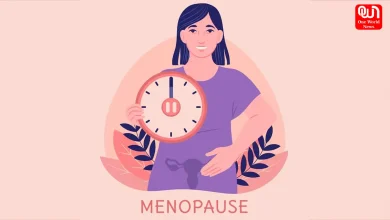When Should You Worry About Your Menstrual Cycle? Understanding Problematic Periods and Signs to Watch For
Understanding when menstrual issues are concerning, from painful periods to irregular cycles. Learn when to seek medical help for a healthy menstrual cycle.
Can Periods Be Problematic? Learn the Signs When You Should Worry About Your Menstrual Cycle and Seek Medical Help
For others, the period is the expected occurrence that must do without fear every month. Others, however, see the menstrual period, such as pain, misconception and perhaps as a disease. If you realize what the regular period of behavior versus recognition is when things will not be good, it can help you seize you how best to keep you in your health.
Understand the typical menstrual cycle
The normal menstrual cycle is 21 to 35 days and menstruation is 3 to 7 days. All women are different and what is normal for one may not be for it. However, there are certain rules and indications of when your period may be worse.
Normal menstrual problems
Menstrual pain (dysmenorea)
Tramar periods are one of the most common menstrual problems. The condition can be as light as mild convulsions or as serious as pelvic pain, which is usually accompanied by impacts, nausea and headaches. Mild convulsions are normal but severe pain that disrupts your routine daily activity, can be a sign of basic state, such as endometriosis, fibroids or adenomyosis. If your pain is heavy or deteriorates, it is advisable to seek medical opinion.
Menorragia (heavy bleeding)
Another common problem is excessive bleeding or menorrhagia. This is where menstrual bleeding is so excessive that hygienic materials should be replaced every hour or last for more than 7 days. Excessive bleeding can cause anemia, exhaustion and disruption of everyday life. Menorragia could be caused by conditions such as fibroids, polyps or hormonal imbalances. If you experience it, it is recommended to visit a medical professional so you can know why and get treatment.
Irregular periods
Irregular periods are when your cycle is not consistent. This could be your period to be extremely irregular, extremely regular, but more frequent or unpredictable length. Although sometimes stress, diet changes or travel cause temporary irregular periods, ongoing irregular periods may be associated with such conditions such as polycystic ovaries syndrome (PCOS), thyroid disease or perimenopause. If your period is consistently irregular or monitor the change in the menstrual cycle, it is worth finding out why.
Read more: Daily 20-Minute Dance Sessions Can Achieve Your Fitness Objectives
Missed periods (amenorea)
The missing period is scary, especially if this happens unexpectedly. The primary amenorea is the inability to menstruate at the age of 16, while the secondary amenorrhea is an inability to have a period in women who had previously had a regular period. The causes of missed periods may include stress, excessive weight loss, excessive physical exercise or diseases such as PCOS, thyroid problems or pregnancy. If your period suddenly stops or you lack more than one cycle, you have to try pregnancy and other health conditions.
When should you worry about your menstrual cycle?
While some menstrual complications may be typical and temporary, there are signs that can warn against an associated serious condition. Do you need a doctor’s intervention if:
1. Severe pain in your periods prevents your life, or over time, pain is reinforced.
2. Your period differs dramatically in terms of frequency and duration, especially if you detect a constantly missed or too difficult period.
3. You have very severe bleeding that causes persistent change in sanitary products or signs of anemia (such as dizziness, fatigue or shortness of breath).
4. There are irregular spots between sex or periods, which in some cases may mean infections, uterine polyps or other conditions.
5. You are more than 40 and notice significant changes in your cycle or symptoms of perimenopause, which could indicate the need for hormonal therapy or other treatment.
Read more: The Influence of Muscle Mass on Metabolism
Seek Help
If any of the above symptoms are present, it is essential to consult a health care expert who can assess your situation and provide instructions. Early intervention can help prevent complications and improve your overall well -being.
Your cycle is a valuable health feature, and although most women feel a certain level of discomfort or inconsistency, it is worth noting when these things may need further investigation. Pay attention to your body and visit your doctor when the time is, keeps you healthy and balance.
We’re now on WhatsApp. Click to join.
Like this post?
Register at One World News to never miss out on videos, celeb interviews, and best reads.








